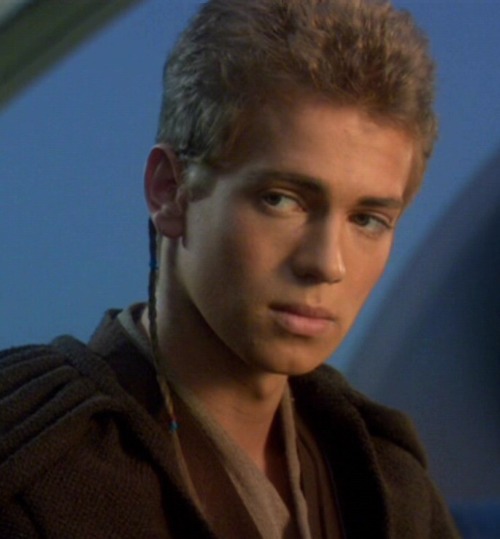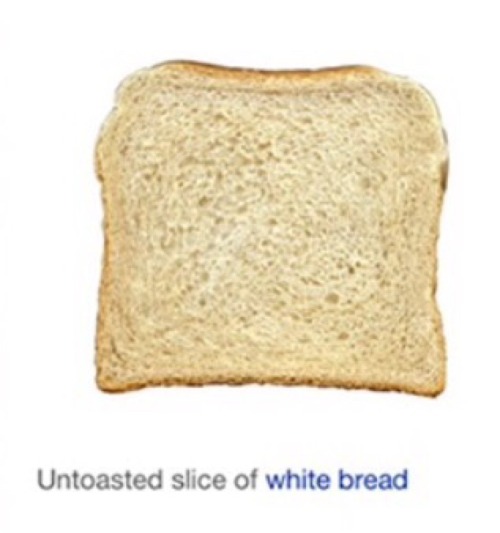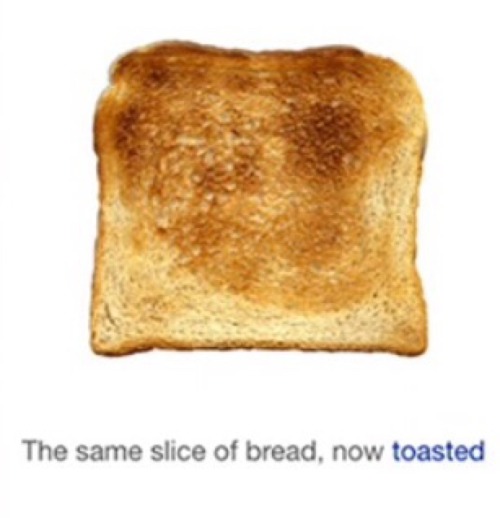Sublimedetectivemusic - ...




More Posts from Sublimedetectivemusic and Others
His Dark Materials is a franchise that tackles so many branches of physics and even creates a universe where the main course of study is experimental theology which is all about identifying and explaining dark matter while also adding dimensions to string theory, the multiverse theory, and the very concept of the human soul. At the same time, it aggressively calls out the problem with the state being controlled by the church, how people are condemned for being different and religious fearmongering stops the chance at growth both on an individual and a societal scale. It’s a franchise where the heroes of the story are two children who aren’t allowed to know the prophecy they’re a part of, who save the world unwittingly simply by doing what they believe to be right. Meanwhile, the person who thought he was the hero all along, the person who rallied an army from multiple universes to FIGHT. GOD. HIMSELF. is ultimately consumed by his own ego and forced to take a back seat when he realises he’s just one tiny piece of a much larger story that’s true heart is his own daugher. The child he abandoned, the child he didn’t know or care to know how to look after. It’s a franchise about finding love even when your biological family abandon you, it’s about looking evil in the eye and seeing your own mother, it’s about good and evil not being black and white but instead a complex and cruel mixture of both. It’s about the two worst people you know banding together at the last second to save their daughter with their final breaths. It’s about exploration and learning how to grow through experience, it’s about kindness being shared across the multiverse, exchanging stories with strangers and saving the whole world by doing something perfectly ordinary and receiving no reward.
Oh, and it’s also a franchise rich with fantasy, with giant talking polar bears, witches and ghosts, angels and daemons, and a mammal-like species from another world that travels exclusively on roller skates.
And it fucking. rocks.
once upon a time
The world of Narnia has stories, of course.
There's the hour-long songs sung by the fauns, the odes of nymphs and dryads, the clumsy jokes told by birds perched on branches in bloom, there's the sulking mining tales told by dwarves who promise that they've seen rubies you can eat.
But beyond Narnia, a troop of outlaws from Archenland flee to the other side of the desert and build themselves an Empire. Some are poets, who sing their words and speak in proverbs - and then a gate opens in Telmar, a land that the outlaws were banished from by Aslan, and out step men and woman and children, dressed in strange garments that carry the fragrance of the sea. And oh, they bring with them tales and songs that meld together with the beginning of Calormen.
The strangers' tongue is foreign to them, but slowly they learn. The first thing they do when the Calormene Empire proposes an alliance is to meld their stories with their own. And the Empire grows richer in their storytelling, folding together the intrinsic yearning of humans for tales with the undoubtable magic of their world. 'Sinbad the Sailor' slowly becomes 'The Tale of Amah and the Bight of Calormen' when a sailor sails too far from home and returns with his eyes yearning for the horizon. The pirates tell them tales of a Golden Fleece, and one-eyed giants, so they spin the tale of Jason and the Argonauts into a poem called 'A Thousand Threads of Gold', and tell it to their children, who tell it to their children's children, who tell it to their children.
So Calormen begins to hone their craft - the stories that live deep within humans, the scorching desert, legends of Archenland and an ornate speech all weave themselves together, and soon, it is known that nobody tells stories quite like the Empire Calormene.
And then, long after the reign of King Frank and Queen Helen has faded into a distorted memory of the collective consciousness of Narnians, two Sons of Adam and two Daughters of Eve step foot into Narnia. They're humans, born storytellers, and they intertwine their earthly tales with Narnian folklore.
The four siblings bring with them stories that Narnians once knew, but barely remember.
High King Peter, the Magnificent often sits down the delegates from Calormen, now a fully flegded Empire, and listens to their tales. And after they finish their poems about 'Youth without Old-Age and Life without Death' and tell him numerous proverbs that seem to him both so very foreign, but so familiar yet, he begins telling them a tale of his own - one that he feels like he's known forever, back when his only title was 'Pevensie'.
"Once upon a time" begins the king, "in a land that can be found nowhere in this world, a forest stretched out for miles and miles, lush and green and beautiful at the border of a town called Nottingham."
After Peter finishes spinning the tale of Robin Hood and his Merry Men, one of the Calormene delegates places down his goblet of Narnian red wine and says:
"If I may, your Majesty, High King Peter the Magnificent. Your reign to Narnia bears resemblance to the one of the Tisroc, may he live forever. Why would you make known to your people such stories that encourage a rebellion against their rulers? I humbly remind you what the poet says: 'He who attempts to deceive the judicious is already baring his back for the scourge.'
High King Peter smiles a genuine smile.
"Interesting input, Adil Tarkhaan." replies the king. "But does the Calormene poet not also say 'Swords can be kept off with shields, but the Eye of Wisdom pierces through every defence'?"
Queen Susan the Gentle is especially fond of the Merpeople, and serves as the designated diplomat whenever meetings between the two nations are required. They sing her their songs that resemble odes of heroes long gone, of adventures beneath the surface, where air is a mystery only few possess.
Now, the Merpeople are especially fond of her too, and the stories she can tell.
The Gentle Queen sits in a Narnian lagoon, her toes barely touching the water, and tells the Merpeople a tale she's told them many times.
"Beyond seven seas and seven countries, in an ocean that's far from this world, there lived a beautiful mermaid, the youngest of seven sisters. Her hair was flaming red and her tail was emerald green, and her eyes were young and curious."
After Susan finishes remembering the tale of The Little Mermaid, the chief of the Merpeople swims up to her and speaks:
"You grace us with your wisdom, Queen Susan of Narnia, for we may not have Witches living in the depths of our waters, but we may very well need to be careful what we wish for."
The Daughter of Eve is a striking appearance among Merpeople with skin tinted blue and white hair - Susan smiles, her hair long and dark, her eyes sparkling and full of life, her cheeks flushed with life.
"Never seek to change yourselves for the approval of others."
King Edmund the Just has such a way with words that he may as well rival the diplomats from beyond the desert. While their poems and proverbs lean towards pragmatic life lessons, Edmund knows tales overflowing with metaphors.
He visits Archenland for their Autumn Feast, and is welcomed graciously by King Lune and his sons. The Feast is grand, meant to celebrate a bountiful harvest, and there are so many types of food Edmund doesn't know where to start - but he tries them all. There's roasts garnished with condiments, roasted potatoes, pomegranate and arugula salads, sweet potatoes with cream, sauces with spicy peppers and rich tomatoes, stuffed baked peppers, dishes with lemon and butter and herbs, corn and hearty rice and beans and vegetables. The King treats the entire capital to the finest wine and grape juice he has, and so the stories begin to flow from their merry hearts.
The people of Archenland sing merry odes and tell tales of heroes and rebels, of crimes and punishments, and, just as King Edmund the Just reaches for another helping of stuffed peppers, King Lune's eyes shine with a marvellous idea.
"King Edmund," he begins, smiling "would you do us the honour of telling one of your stories?"
Edmund hesitates, but everyone's looking at him. Everything's quiet, and the pleasant ringing of cutlery has slowly stopped. The young man gently nods his head and obliges. He takes a moment to think, and he remembers a faint memory of a tale read in an old, heavy book.
"Many eons ago, before this world was even born, there lived in another land a young woman. She was gifted with beauty and intelligence, and flowers bloomed when they saw her near. While she was blessed with all this, a single trait in her soul served as both a blessing and a curse. Pandora was a very curious human."
The King of Narnia tells the story of Pandora and her infamous box, as best as he remembers it, but he tells it in a way that entrances the listeners so much that they stop eating. Compared to the words sewn together by the young man with piercing eyes and dark brown hair, the chocolate cakes topped with persimmons, the cherry puddings and apple pies, lemon pastries and baked apples with cream all look bland.
And when Edmund finishes his tale with the reassuring presence of Hope in Pandora's myth, Prince Cor thanks him with wise words:
"You have chosen the best story to tell at the Autumn Feast, your Majesty, for Hope is truly the meaning of this season. Though the leaves are falling and we are humbly harvesting our crops, we have hope that spring will come again."
Queen Lucy the Gentle tells herself stories every night to fall asleep. Though, when she turns nineteen, she begins sharing them with the fauns.
One morning, at sunrise, she trudges over to Mr Tumnus' quaint hut on castle grounds, wrapped in a thick blanket, unable to sleep, for there are memories of aeroplanes and bombs and tanks plaguing her dreams.
The faun is already awake, having his first breakfast. He serves Lucy with coffee cake and lemon tea with honey, and she graciously accepts.
"You might take your mind off it if you tell me a story." Proposes Tumnus, having another bite of his cake.
The Gentle Queen looks at the burning fire and the corners of her lips twitch up in a smile.
"My mother used to tell me this story back when I was a little girl." She begins. "It begins in the same world I came from, with a happy family going by the name of the Darlings."
Lucy hums the tale of Peter Pan through sips of lemon tea, and when she reaches the end, the sun is trickling softly through the windows of the small hut. Tumnus reaches for his flute and brings it to his lips.
He begins retelling the story in a song, and Lucy sees Neverland through the flames of the fireplace.

Goddamn. Okay
summer is just like i have all the time in the world i never have enough time i am so happy i am so depressed i have nothing to do i have too many things to do i want to go outside i never want to leave my room i hate people i am so lonely i slept for fifteen hours i haven't slept in three days i am so overwhelmed i am so bored life is good i am going to die
David Tennant reads the bookshop scene from Good Omens during Playing in the Dark: Neil Gaiman and the BBC Symphony Orchestra.
Posting here to memorialise this even after the BBC takes it down from their website. Originally performed 12th Nov 2019 at the Barbican, London.
…his Aziraphale voice is so delicate oh my word, I’m ready to offer my life savings and possibly a kidney in exchange for a full-length audiobook

sirius_lives_au.jpg
prizoner_of_azkaban_au.jpg
fix_it_au.jpg
dumbledore_can_suck_my_____.jpg
anyway enjoy this messy comic where everyone gets exactly what they deserve❤
if i was a doctor who companion the first thing i’d do is go back to the 19th century and introduce them to hozier



“Always the same words: ‘He’s at Hogwarts…he’s at Hogwarts.’”
the way hozier titles a song "i, carrion (icarian)" where he sings about the self-destructive idea of sacrificing himself by flying into sun to save his relationship, and compares himself to 'carrion', the decaying flesh of animals, often a word used for roadkill. to then go and write a song called "abstract (psychopomp)" about how holding an animal whilst it dies mirrors the mercy of ending a failing relationship, similar to a 'psychopomp' - a deliverer of death. and we watch as hozier turns from 'icarian' to 'psychopomp' when he realises that prolonging suffering is crueler than just letting love die. i'm both in awe and crying on my bedroom floor.
and the way a carrion crow is also a symbol of death ?? and how 'carrion' sounds like 'carry on' the way icarus kept going ?? and how he sounds envious of his lover's courage in "abstract" ?? how when the sun is gone - "streetlights in the dark blue" - he can no longer blind himself and is forced to look at the corpse of his relationship ?? how to love is to let go ?? how can he keep getting away with this i'm sobbing ??
Zombies shouldn't growl or snarl, they should babble a mixture of incomplete word sounds and whole words or sentence fragments. Every zombie should sound almost but not quite like it's trying to tell you something.
-
 sexynakedblackguy reblogged this · 1 week ago
sexynakedblackguy reblogged this · 1 week ago -
 headab0vethewavez reblogged this · 1 week ago
headab0vethewavez reblogged this · 1 week ago -
 ask-apostle-ghoul liked this · 2 weeks ago
ask-apostle-ghoul liked this · 2 weeks ago -
 themostbeomanintheworld reblogged this · 2 weeks ago
themostbeomanintheworld reblogged this · 2 weeks ago -
 gaycats12 reblogged this · 2 weeks ago
gaycats12 reblogged this · 2 weeks ago -
 gaycats12 reblogged this · 2 weeks ago
gaycats12 reblogged this · 2 weeks ago -
 gaycats12 liked this · 2 weeks ago
gaycats12 liked this · 2 weeks ago -
 shylittlefr0g liked this · 2 weeks ago
shylittlefr0g liked this · 2 weeks ago -
 valreanakuroo reblogged this · 2 weeks ago
valreanakuroo reblogged this · 2 weeks ago -
 krianal reblogged this · 2 weeks ago
krianal reblogged this · 2 weeks ago -
 sister-cna-reader reblogged this · 2 weeks ago
sister-cna-reader reblogged this · 2 weeks ago -
 avian4653 reblogged this · 2 weeks ago
avian4653 reblogged this · 2 weeks ago -
 for-the-evulz reblogged this · 3 weeks ago
for-the-evulz reblogged this · 3 weeks ago -
 for-the-evulz liked this · 3 weeks ago
for-the-evulz liked this · 3 weeks ago -
 wonderin-aliceland reblogged this · 3 weeks ago
wonderin-aliceland reblogged this · 3 weeks ago -
 wonderin-aliceland liked this · 3 weeks ago
wonderin-aliceland liked this · 3 weeks ago -
 spiderlily24 reblogged this · 3 weeks ago
spiderlily24 reblogged this · 3 weeks ago -
 awesome-chameleon reblogged this · 3 weeks ago
awesome-chameleon reblogged this · 3 weeks ago -
 awesome-chameleon liked this · 3 weeks ago
awesome-chameleon liked this · 3 weeks ago -
 spel16 liked this · 3 weeks ago
spel16 liked this · 3 weeks ago -
 fairchristabel liked this · 3 weeks ago
fairchristabel liked this · 3 weeks ago -
 joltstorm liked this · 3 weeks ago
joltstorm liked this · 3 weeks ago -
 neoglowratz liked this · 3 weeks ago
neoglowratz liked this · 3 weeks ago -
 anaconda-creates liked this · 3 weeks ago
anaconda-creates liked this · 3 weeks ago -
 awizardmostkitty reblogged this · 3 weeks ago
awizardmostkitty reblogged this · 3 weeks ago -
 awizardmostkitty liked this · 3 weeks ago
awizardmostkitty liked this · 3 weeks ago -
 fieldsandfurrets reblogged this · 3 weeks ago
fieldsandfurrets reblogged this · 3 weeks ago -
 trainsgenderfoxgirl2816 reblogged this · 3 weeks ago
trainsgenderfoxgirl2816 reblogged this · 3 weeks ago -
 trainsgenderfoxgirl2816 liked this · 3 weeks ago
trainsgenderfoxgirl2816 liked this · 3 weeks ago -
 kissthego-goat0 liked this · 3 weeks ago
kissthego-goat0 liked this · 3 weeks ago -
 stitched-skies liked this · 3 weeks ago
stitched-skies liked this · 3 weeks ago -
 catovna-blog liked this · 3 weeks ago
catovna-blog liked this · 3 weeks ago -
 englishlotusflower reblogged this · 4 weeks ago
englishlotusflower reblogged this · 4 weeks ago -
 khionefr0st reblogged this · 4 weeks ago
khionefr0st reblogged this · 4 weeks ago -
 khionefr0st liked this · 4 weeks ago
khionefr0st liked this · 4 weeks ago -
 rinamata05 liked this · 4 weeks ago
rinamata05 liked this · 4 weeks ago -
 neveth reblogged this · 1 month ago
neveth reblogged this · 1 month ago -
 vashta-n3rdada liked this · 1 month ago
vashta-n3rdada liked this · 1 month ago -
 abyssomega reblogged this · 1 month ago
abyssomega reblogged this · 1 month ago -
 abyssomega liked this · 1 month ago
abyssomega liked this · 1 month ago -
 thetimelordbatgirl reblogged this · 1 month ago
thetimelordbatgirl reblogged this · 1 month ago -
 space-assholes reblogged this · 1 month ago
space-assholes reblogged this · 1 month ago -
 legosloth16 reblogged this · 1 month ago
legosloth16 reblogged this · 1 month ago -
 legosloth16 liked this · 1 month ago
legosloth16 liked this · 1 month ago -
 ellionmeds liked this · 1 month ago
ellionmeds liked this · 1 month ago -
 swissghostrealtor liked this · 1 month ago
swissghostrealtor liked this · 1 month ago -
 flyiingsly reblogged this · 1 month ago
flyiingsly reblogged this · 1 month ago -
 k8y411 liked this · 1 month ago
k8y411 liked this · 1 month ago -
 thesevenstarfoxes liked this · 1 month ago
thesevenstarfoxes liked this · 1 month ago -
 chappucino reblogged this · 1 month ago
chappucino reblogged this · 1 month ago
